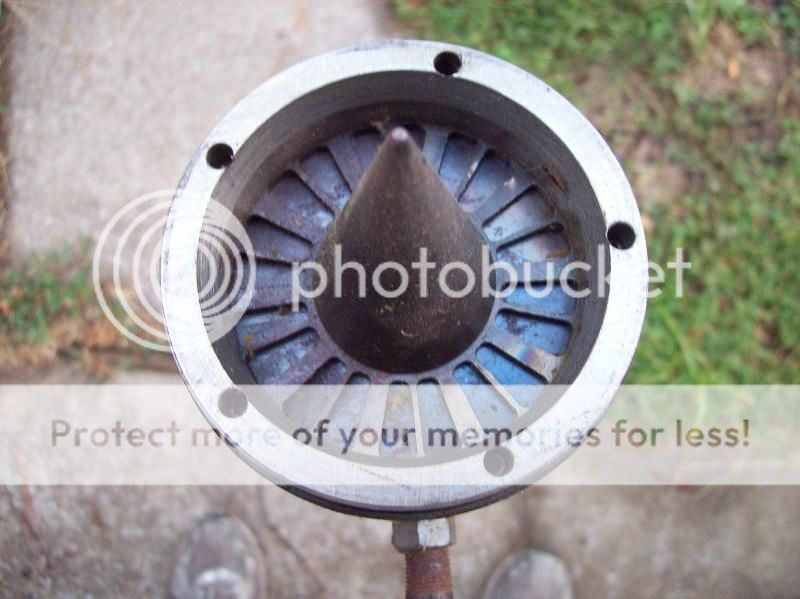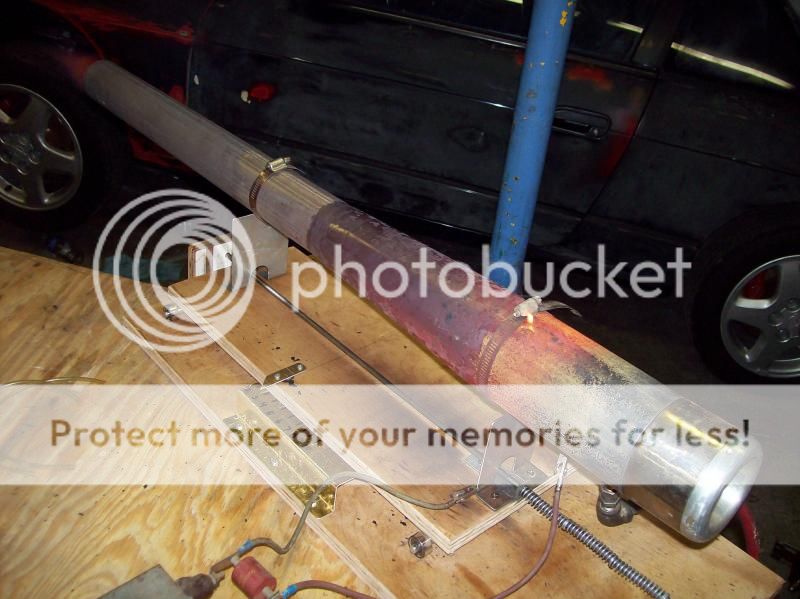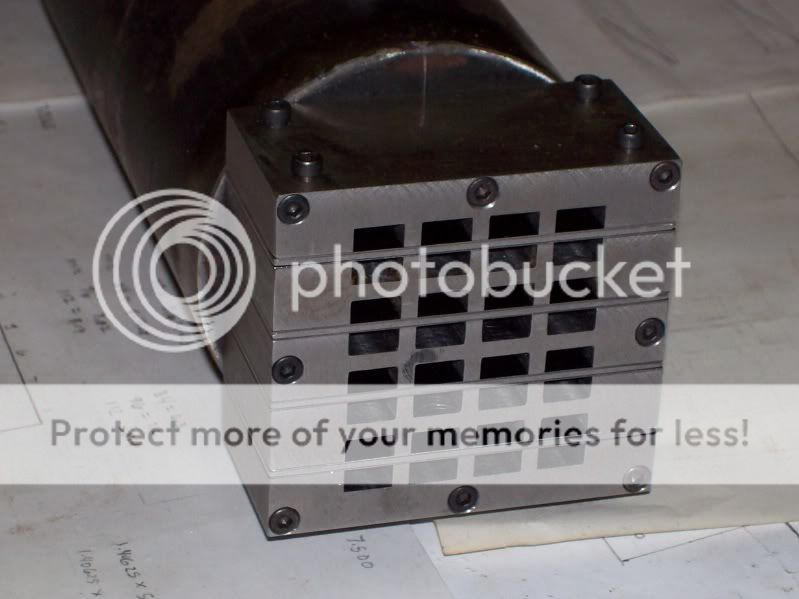I have been building and testing Pulse Jet Engines for years. I need a way to test an engine when it runs to determine the run frequency?
I can use a physics formula to calculate the frequency of a closed tube but I have no clue if that is accurate because the engine body diameter changes to double in size at the combustion chamber and I dont know if the reed valves causes this to not be a closed tube?
I can use a physics formula to calculate the frequency of a spring to find the frequency of the reed valve but I have no what to know if the math is correct, the movement of the valve can be changed by adjusting the valve retainer opening. If the reed valve is allowed to open .200" and the frequency is 200HZ then if the valve is allowed to open twice as far .400" frequency changes to 100Hz. This is not the natural frequency of the spring.
When the engine runs the combustion cycle produces kenetic energy. The pressure cycle goes down the exaust pipe about 1/2 way down psi = zero after that it sucks a vacuum that opens the reed valves. This sucks in the next air/fuel mixture for the next combustion cycle.
The reed valves must open/close at the same Hz of the engine. If the Hz does not match and the engine fires when the valve is not closed this slams the valve shut causing them to break. The valves need to open/close like the rockers on a rocking chair. If the valves open and close like a flag blowing in a tornado it distroys the valves.
There are different type valves. Pedal valves work best on small engines, Argus valves work best on large engines.
Engines are LOUD 150 db. I have used tiny speakers, tiny mics, and my VOM set on Hz to read frequency. It seems to work but I have no clue if it is accurate?
I need some help. What will be the best and most accurate transducer to use to detect the run frequency of an engine?




**broken link removed**
I can use a physics formula to calculate the frequency of a closed tube but I have no clue if that is accurate because the engine body diameter changes to double in size at the combustion chamber and I dont know if the reed valves causes this to not be a closed tube?
I can use a physics formula to calculate the frequency of a spring to find the frequency of the reed valve but I have no what to know if the math is correct, the movement of the valve can be changed by adjusting the valve retainer opening. If the reed valve is allowed to open .200" and the frequency is 200HZ then if the valve is allowed to open twice as far .400" frequency changes to 100Hz. This is not the natural frequency of the spring.
When the engine runs the combustion cycle produces kenetic energy. The pressure cycle goes down the exaust pipe about 1/2 way down psi = zero after that it sucks a vacuum that opens the reed valves. This sucks in the next air/fuel mixture for the next combustion cycle.
The reed valves must open/close at the same Hz of the engine. If the Hz does not match and the engine fires when the valve is not closed this slams the valve shut causing them to break. The valves need to open/close like the rockers on a rocking chair. If the valves open and close like a flag blowing in a tornado it distroys the valves.
There are different type valves. Pedal valves work best on small engines, Argus valves work best on large engines.
Engines are LOUD 150 db. I have used tiny speakers, tiny mics, and my VOM set on Hz to read frequency. It seems to work but I have no clue if it is accurate?
I need some help. What will be the best and most accurate transducer to use to detect the run frequency of an engine?




**broken link removed**
Last edited:
